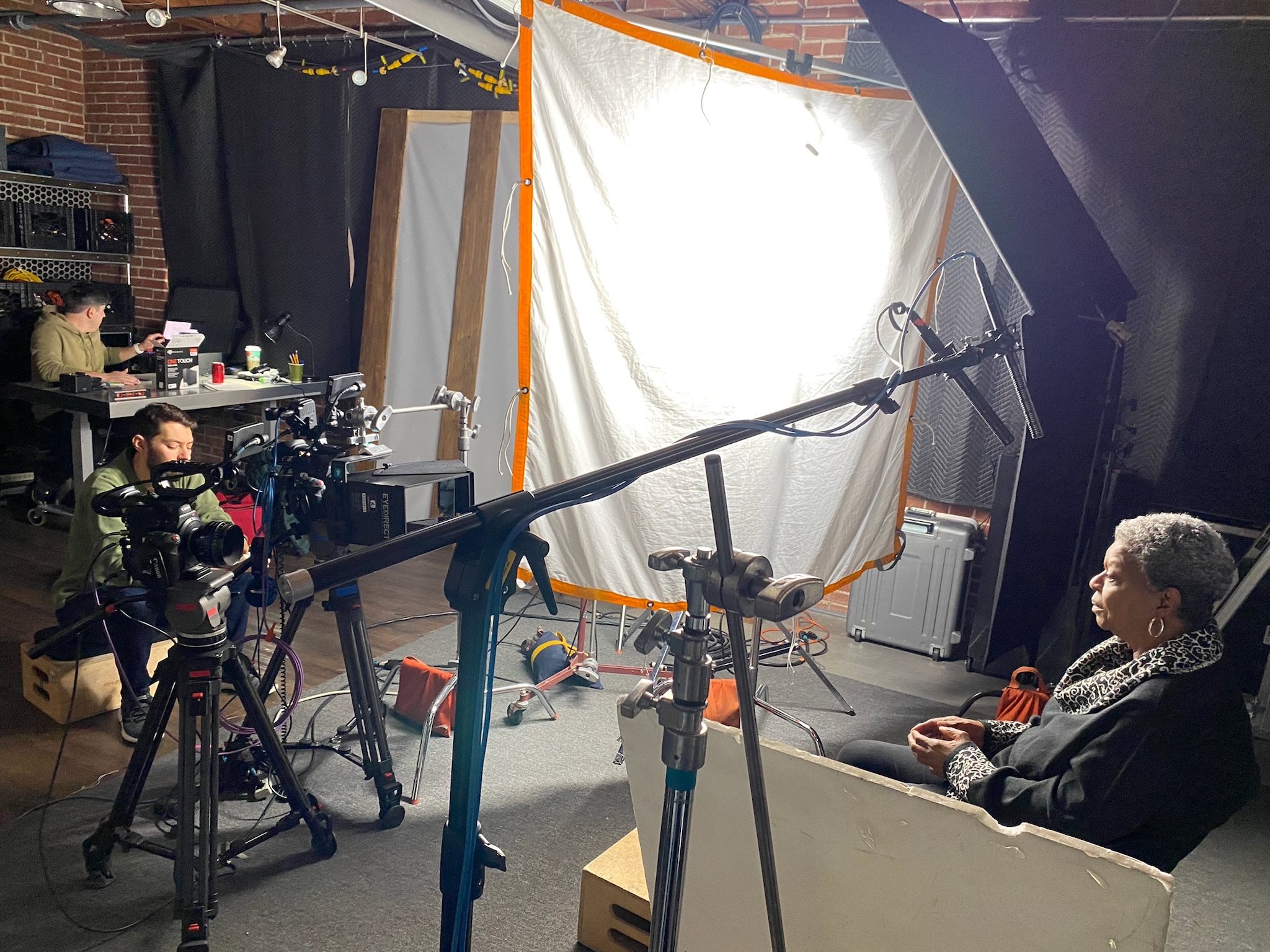We’re excited to introduce you to the always interesting and insightful Joseph Puleo. We hope you’ll enjoy our conversation with Joseph below.
Joseph, looking forward to hearing all of your stories today. We’d love to hear about a project that you’ve worked on that’s meant a lot to you.
The most meaningful project I’ve worked on is my documentary, <i>Brothers in Blood: Black in Vietnam</i>, which is complete and currently seeking distribution.
The film examines the often-overlooked Black experience at home and abroad during the Vietnam War.
This wasn’t a story I ever imagined telling, and the journey began in the most unexpected way. While waiting to get new tires at Costco, I struck up a conversation with Edward Drew, a Black Vietnam veteran. Over the next hour, we talked about tires, life, and eventually, the Vietnam War.
Mr. Drew told me about his time in Vietnam, and after learning that I was a documentary filmmaker, passionately made the case for why a film about the Black experience in Vietnam was long overdue. After hearing his story, I knew this film had to be made.
This project allowed me to delve into an underreported part of history and connect with incredible people—war heroes, widows of fallen soldiers, and scholars—each offering unique and powerful perspectives on the war.
<i>Brothers in Blood</i> became more than just a film; it was a mission to honor voices that deserved to be heard. The journey was transformative, and I’m incredibly excited to finally share it with the world in the near future.


Joseph, before we move on to more of these sorts of questions, can you take some time to bring our readers up to speed on you and what you do?
I’ve always wanted to be a filmmaker, but like many creatives, I had no clear roadmap on how to break into the industry.
In high school, I started making short films and learned how to use the camera and editing software. This gave me a head start when I eventually majored in film production at Lindenwood University.
After graduating, I produced and directed <i>Top Son</i>, a comedic mockumentary short film about a Tom Cruise impersonator. It found success at local and national film festivals and was even featured by Kevin Hart at the Just For Laughs festival in Montreal. That project became my calling card and opened new doors.
Soon after, I was offered the chance to direct a documentary about the historic Italian-American neighborhood in St. Louis, The Hill. As an Italian-American myself, it was a deeply personal story I couldn’t pass up.
Since then, it’s been seven years of non-stop work—producing and directing four feature-length documentaries: <i>America’s Last Little Italy: The Hill</i>, <i>A New Home</i>, <i>Brothers in Blood: Black in Vietnam</i>, and <i>Percy Green: Man of ACTION</i>. The latter two are slated for an upcoming release.
What I’m most proud of is the growth I see with every project—the progress being made from one film to the next. Along the way, I’ve been fortunate to earn multiple Telly Awards, a Mid-America Emmy, and a nomination for Outstanding Regional Documentary by the News & Documentary Emmys. Being recognized for my work so early on has been incredibly encouraging, and it motivates me to keep pushing forward and telling meaningful stories.
I would say what sets me apart is my tenacity and drive. I’m relentless in my pursuit of being the best filmmaker I can be. Ultimately, I want my films to tell stories that matter, shed light on untold histories, and leave a lasting impact.

For you, what’s the most rewarding aspect of being a creative?
For me, the most rewarding part of being a documentary filmmaker is giving people the opportunity to share their stories.
Two of my films have focused on war—<i>A New Home</i> (the Bosnian War) and <i>Brothers in Blood: Black in Vietnam</i> (the Vietnam War). In both, I interviewed individuals who had never spoken openly about their experiences. Many had repressed those memories, and sharing them on camera proved deeply cathartic. Several expressed how grateful they were for the chance to finally open up.
Moments like these remind me of the true power of documentaries: preserving important histories and amplifying voices that might otherwise go unheard. That kind of impact makes every challenge along the way completely worth it.


Can you tell us about a time you’ve had to pivot?
The biggest pivot in my career was shifting from narrative filmmaking—specifically comedy—to documentary.
In 2018, I was offered the chance to direct what ultimately became <i>America’s Last Little Italy: The Hill</i>. Directing a feature had always been my main goal, so the fact that it was a documentary rather than a comedic narrative didn’t faze me. What truly sealed it was how naturally the documentary blended my passions.
I had a background in journalism—it was my first major in college—so documentary filmmaking allowed me to combine my journalistic instincts with my love for visual storytelling.
Looking back, it wasn’t just a pivot; it was a turning point that led me to work I feel truly connected to, and I’m confident it’s what I was meant to do.




Contact Info:
- Website: caleoproductions.com
- Instagram: @joedompuleo
- Facebook: facebook.com/joe.puleo.07/
- Linkedin: Joseph Puleo
- Twitter: @joepuleo
- Youtube: youtube.com/@joedompuleo
Image Credits
Alvin Zamudio, Riley Perkins, Vincent Italiano – Nine PBS, News & Documentary Emmy Awards, Mid-America Emmy Awards


